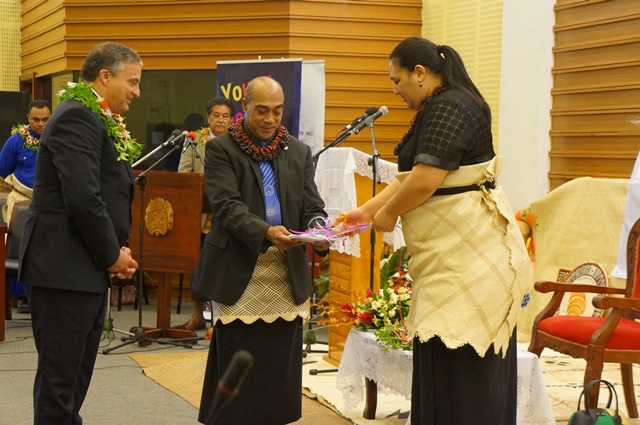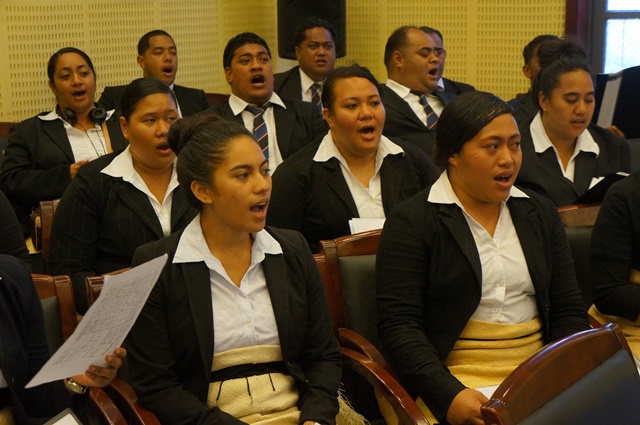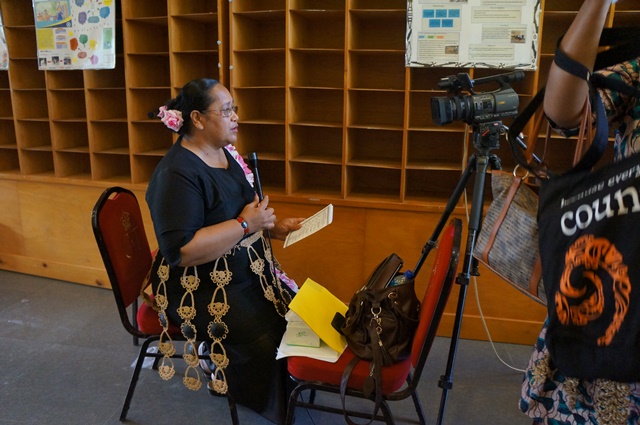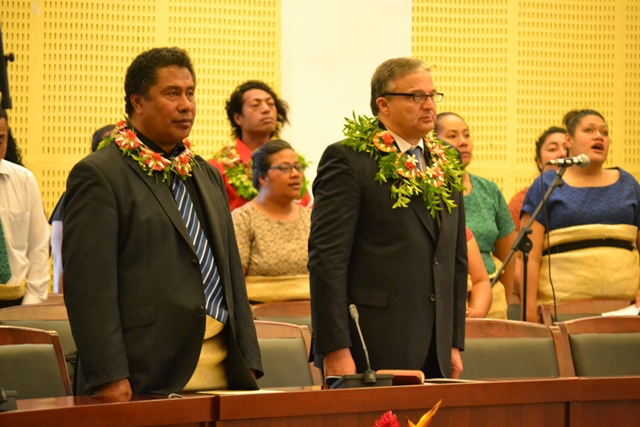AS the international community prepares for a development agenda to take us further down the path of progress from 2015 to 2030, Tonga hosted the launching of a report on Wednesday which affirms the potential of those who will drive this next phase of global development, the adolescents or the youth of today.
The Pacific launch of the United Nations Population Fund (UNFPA) 2014 flagship report, the State of World Population, was officiated by Her Royal Highness Crown Princess Sinaitakala Tuku'aho.

The report focuses on young people and the benefits of investing in the development of their capacity to be effective agents of change, today. Entitled The power of 1.8 billion: Adolescents, Youth and the Transformation of the Future, the report is the clarion call for us as humanity, if we are to have a future of resilient and healthy people.
Youth are innovators, creators, builders and leaders - 1.8 billion young people are waiting to show the world what they can do but we must give them a chance. How we meet the needs and aspirations of young people will define our common future. Nations which genuinely invest in youth today will be in a better position by the second half of the century, with more educated and healthy populations, more productive workforces and growing economies.
One of the most sustainable approaches to equipping youth to face the future with confidence and resilience is by securing a demographic dividend. This is a time in a country's history when the number of people in the workforce is more than dependents, who are usually children and older people. When this occurs, nations have a lot more resources at their disposal for economic development.
The demographic dividend offers Pacific Island nations a way to develop their human resources, while at the same time creating an enabling environment for progressive and sustainable island communities.
The 14 Pacific Island nations served by the UNFPA Pacific Sub-Regional Office have had different milestones in terms of development progress relative to a youth dividend. In Tonga for example, this demographic transition has proceeded at a relatively slow pace as the country still has a high total fertility rate of 3.9. This is a central demographic issue for most of our island nations which may call for strong policy formulation.

Compared with other countries in the Pacific, Tonga has one of the lowest reported rates of adolescent pregnancies. This however is largely offset by the relatively high total fertility rate, which could be attributed to the fact that three quarters of Tonga's population remain rural. This combination of high total fertility rate, high net emigration and rising life expectancy means that today, 37 per cent of Tonga's population is below 15 years old and 9 per cent over 60 years old. This has led to a proportionally small labour force and thus a high dependency ratio.
We must arrest and even reverse, if we can, trends like this in the Pacific if we are to secure and take advantage of a youth dividend. We must address obstacles that threaten this generation. It is our collective responsibility as members of our island communities to break down the socioeconomic and cultural barriers which continue to deprive young people, especially girls and young women, full realisation of their potential.
Adolescents and youth must be able to access information and services which will inform their behaviour. Considering the alternative sources of information enabled by the internet, it is perhaps best that our adolescents receive correct and timely information from youth-friendly medical services and or the school system through comprehensive family life curriculum which include life skills.
A global survey in 2013 in 176 United Nations member states and seven territories found those in early stages of transition are generally doing well in policies critical to the creation of this dividend. The survey affirmed progress on many levels, for example, how young people are being included more in policy agendas. However achievements lag behind commitments because many policies and strategies lack full funding for implementation.
Like most of our island nations in this region, Tonga has various development and planning frameworks and strategic plans that are considered pro-youth. These include a National Reproductive Health Policy and or the 2013 Family Protection Bill. Such frameworks are good first steps for the region but legislative frameworks are only as good if they are fully implemented.
We owe it to our children's children to ensure sound and appropriate public policy choices and investments.

Countries which have yet to experience a demographic transition that could secure a youth dividend can begin now with a reduction in fertility and mortality rates. Individuals and couples have every right to have as many children as they want, this is a given. However, when we have the number of children according to our resources, we are already investing in our human capital.
When individuals or couples can access contraceptives to enable them to plan their family this way, they are also being empowered to participate fully in employment. We must improve access to financial systems and increase employment opportunities.
Critical however is how young people must be at the centre of our development plans if we want a progressive and sustainable future. The report makes the case that developing countries with large youth populations could see their economies soar, provided they invest heavily in young people's education and health and protect their rights, especially their right to sexual and reproductive health.
"Young people are a priority for UNFPA and this report is an excellent resource with compelling data and analysis. Investing in young people's human capital can help countries reap a demographic dividend that can lift millions out of poverty and raise living standards," said UNFPA Pacific Sub-Regional Office director and representative Dr Laurent Zessler.
"As countries pursue a demographic dividend, the gains made must result in inclusive, equitable growth that benefits everyone. This requires the promotion of equal opportunities for all, including adolescent girls and young women."


